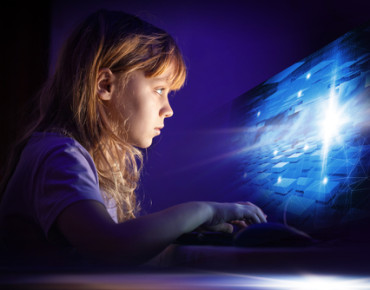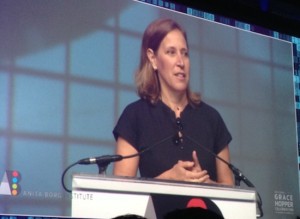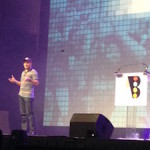New Programs Empower Girls in Computer Science

(Source: Shutterstock/Eugene Sergeev)
Some technology businesses and non-profits are rising to the challenge of encouraging more girls to consider computer science careers, unveiling long-term initiatives at the Grace Hopper Celebration in Houston today.
YouTube, in partnership with Google's Made with Code team, will partner to host "codeGirl" at no cost on Nov. 1 through 5 before it hits theaters, said YouTube CEO Susan Wojcicki in a keynote address.
Wojcicki premiered the official movie teaser (available here) during her presentation; it won the Tribeca Film Institute's mobile hackathon in April, and was directed by Lesley Chilchott, also known for her work on "An Inconvenient Truth" and "Waiting for Superman."
"Lesley created a new documentary about the role girls can play in technology and the importance of getting them involved," Wojcicki said.
But this is just the beginning of YouTube's increased emphasis on improving diversity, especially among young women and girls, she said.
"Over the next year, you're going to hear about how YouTube is working to bring more women behind and in front of the cameras and how we will be encouraging the content to show women in tech in a positive light," said Wojcicki.
For its part, Girls Who Code on Thursday kicked off a national Alumni Network for Girls Who Code program graduates. Founding supporters AT&T, the Prudential Foundation, and Adobe contributed $2.7 million to ensure young female graduates have career pathways in computer science. To support the initiative and gain social-networking traction, organizers designed the #HireMe hashtag they hope will gain momentum across social media.
More than 20 technology companies – many of them also present at the Grace Hopper Celebration – have pledged to share paid internships and other opportunities with Girls Who Code alumni as part of this Hire Me campaign. Businesses range from consulting firms such as Accenture to financial enterprises like Capital One and JP Morgan Chase and technology developers including Microsoft, LinkedIn, and Pinterest.
"Silicon Valley companies are clamoring for technical women," said Donna Morris, senior vice president, People & Places at Adobe. "But not enough women are pursuing these careers. Girls Who Code has found the magic in building 1:1 relationships for girls with strong mentors, and their results have been impressive. We’re excited to invest in mentoring and eventually hiring Girls Who Code graduates as part of our workforce."
Too often, girls – and students in general – do not get enough access to coding, said Hadi Partovi, co-founder of Code.org, whose "Hour of Code" program is designed to demystify coding to children around the world. Between Dec 7 through 13, the organization hopes to encourage 100,000 teachers to host an Hour of Code in their classrooms; Microsoft and Amazon will give gift cards to each organizer who hosts the program, Partovi said.
"This is a civil rights problem in our country. Can the school systems evolve to teach this stuff? The answer is yes. The real question is, 'How quickly are we going to make this change happen?'" he said. "The Hour of Code drives students to learn more. In the last two years, we've had 300 or more organizations join forces to solve this problem."
More than 70 of the nation's largest school districts now teach code and 15,000 new teachers are now trained to teach computer science; of these, 85 percent are women, said Partovi. More than one-tenth of all U.S. students in grades K through 8 have begun coding and 43 percent of them are girls, he noted.
There are still challenges, of course.
Wojcicki recalled her daughter's initial lack of interest in computers, driven in part, perhaps, by her brother's hogging of the family PC.
"In her words, and I interviewed her on this, he had conquered it. And she had to find something else to do. But after she said, she also added that it was super lame to like computers and she had much better things to do with her very busy life," said Wojcicki. "Today that pattern is playing out with girls across America. Girls are being left out of the conversation when it comes to technology. They're being led to believe technology is insular and anti-social and they are never given a chance to correct those conversations."
With computers increasingly invaluable in every vertical and every job, correcting these misconceptions is critical or else the female perspective – and women's livelihoods – will be at risk. And businesses will suffer from the lack of diversity a single view brings.
"If women do not participate in tech they are losing the chance of influencing the largest economic and social shift of this century." Wojcicki said. "The fact women represent such a small percent of the workforce shouldn’t be a wake up call. It should be a Sputnik moment."
Related
Managing editor of Enterprise Technology. I've been covering tech and business for many years, for publications such as InformationWeek, Baseline Magazine, and Florida Today. A native Brit and longtime Yankees fan, I live with my husband, daughter, and two cats on the Space Coast in Florida.












